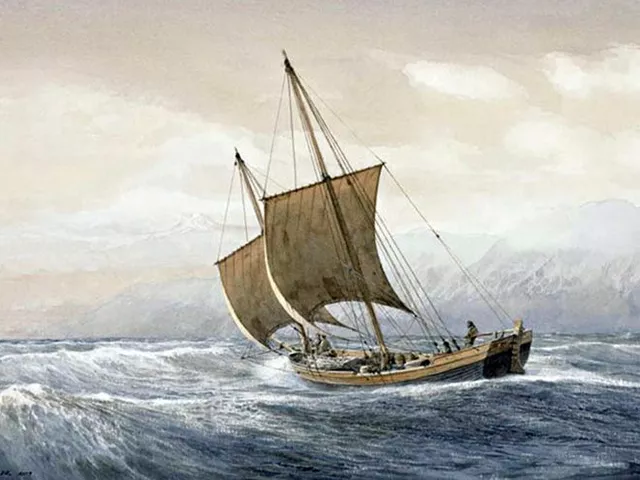Sailing into the Depths of the Phrase 'Weigh Anchor'
Picture this: A ship at sea, rocking gently with the rhythm of the ocean. The captain hands over the command, "Weigh anchor!" suddenly, the hitherto peaceful crew erupts into a frenzy of activity. Ever wondered how this captivating nautical term came to be? Well, today we're setting sail on a linguistic voyage to find out.
Unraveling the Threads of Nautical Linguistics
Every phrase we use has a history, often etched deeply into the annals of human civilization. The term 'weigh anchor' is no different. To unlock its meaning, we must first unfurl the sails of understanding. The word 'weigh' is derived from the Old Norse term 'vega,' meaning to raise or lift. And an anchor, as we know, is a heavy object attached to a ship that is thrown into the water to hold the vessel in place.
Merge the two together, and voilà - 'weigh anchor' - in essence, an instruction to lift the anchor. Now we not only know what it means but also why it's phrased the way it is. Language and its etymology, dear reader, are as exciting as uncovering hidden treasure.
Embarking on a Historical Voyage
To comprehend how the sailing term 'weigh anchor' came about, we must traverse back in time, when man first took to the seas. Early sea explorers, who charted the vast oceans, frequently used weights to secure their vessels. These early weights were not the sophisticated anchors we see today. They were simply rocks or other heavy objects.
Over time, the act of lifting these weights came to be known as 'weighing.' The weights turned into anchors, and the act of lifting them became thus known as 'weighing the anchor.' It's akin to how my wife, Amelia, converted our once muddled garage into an efficient workshop. The physicality may alter, but their function remains the same.
The Significance of Weighing the Anchor
The term 'weigh anchor,' however, extends beyond its literal meaning. When a captain gives the command to 'weigh anchor,' it's more than just lifting a heavy object from the water. It's the initiation of a journey, beginning a new chapter, setting off towards the unknown – a symbol of transition and transformation.
Think about the first time you heard someone say "weigh anchor." Didn't it set your heart aflutter with the possibility of adventures? That's because it's a phrase imbued with change and motion – the very essence of life! As Amelia would often quote, "Life is a series of natural and spontaneous changes. Don't resist them - that only creates sorrow."
Diving into Modern Day Usage
Over time, like the winds of the sea reshaping coastlines, the usage of the term 'weigh anchor' has expanded. Today, it's used metaphorically in a variety of contexts. For instance, you could be 'weighing anchor' when you are quitting a job. Or when moving from your hometown, Amelia and I 'weighed anchor' when we embarked on our life together, and we continue to do so each time we journey into the unknown.
Phrases That Anchor Us To Our Past
The beauty of such phrases is they anchor us to our past. They remind us of our human journeys and collective histories. They ground us in tradition while simultaneously allowing our thoughts to sail towards new horizons. So the next time you decide to 'weigh anchor,' remember you're part of a grand continuum, a tapestry woven by the threads of time.
Navigating Deeper Waters
Knowing about the term 'weigh anchor' and its origin is akin to holding a compass while navigating the vast ocean of language. It provides direction, depth, and delight, making our linguistic journey even more enjoyable. However, our trip doesn't end here. Stay on board as we explore more nautical terms and their origins in future posts.
As Amelia always jokes while we're preparing for a new adventure, "There's a whole sea of words out there, Cedric. Ship ahoy!" So here's to weighing anchor and diving deeper into the uncharted waters of our language.
